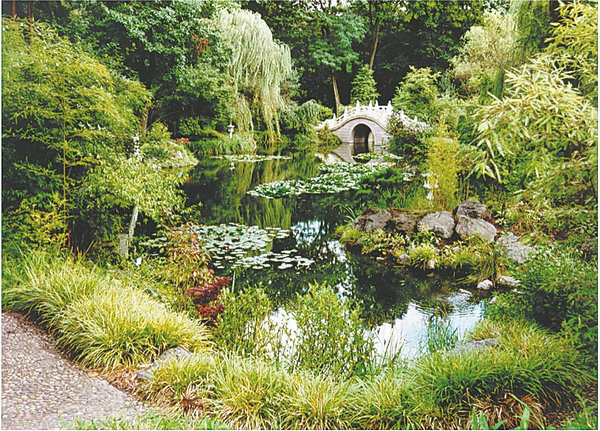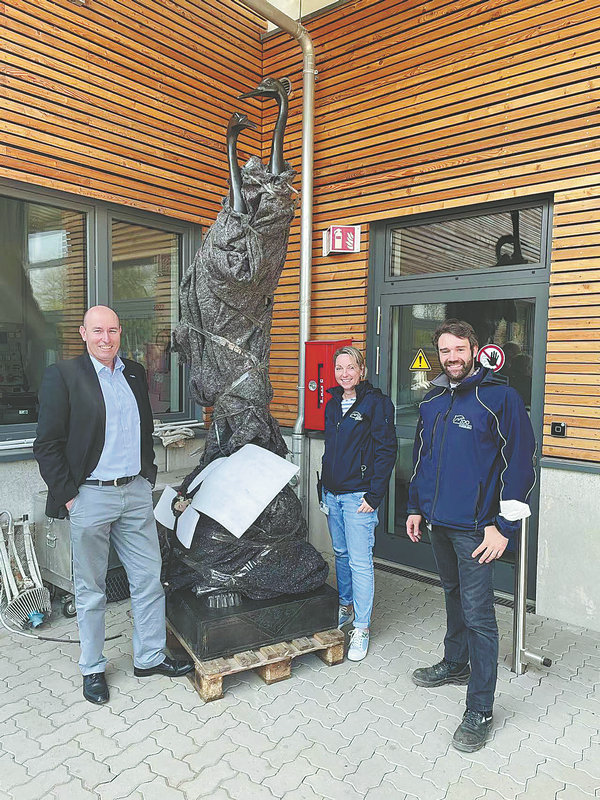

At the Duisburg Zoo, a garden with its flora-pendant gates, pavilions and an arched stone bridge offers an immersive way to experience a classic Chinese garden.
The Yingqu Garden has stood as a symbol of friendship between Wuhan, Central China's Hubei province, and the German city of Duisburg, on the confluence of the Rhine and Ruhr rivers, since 1987.
Initially, the garden was presented as a gift from the city of Wuhan. Now, as the "sister cities" celebrate the 40th anniversary of ties this year, engineers from both cities are working together to restore the garden. The project is set be completed in July.
The garden is about the size of a football pitch, with typical Chinese architectural elements, such as the widely applied mortise-and-tenon structures decorated with stone lions, trails, streams and rockeries. The garden's florae comprise bamboo, weeping willows, water lilies, metasequoia and wintersweet trees. The metasequoia and wintersweet trees are Wuhan's representative plants.
The garden was first constructed at the Wuhan Zoo, before it was pulled apart, packed into 14 containers, transported to Duisburg, reassembled, and finally opened to the public in 1988.

According to Astrid Stewin, director of the Duisburg Zoo, the garden has around 800,000 visitors a year and is well-known in the city and across Germany. It's been a window for local people to view Chinese culture for years.
"I was very excited when the Chinese garden opened. I was a child then," said mayor of Duisburg Soren Link in a 2018 interview.
He remembered seeing red-crowned cranes, red pandas and deer from China there. He said his generation of Duisburg natives grew up learning about Chinese culture from the garden.